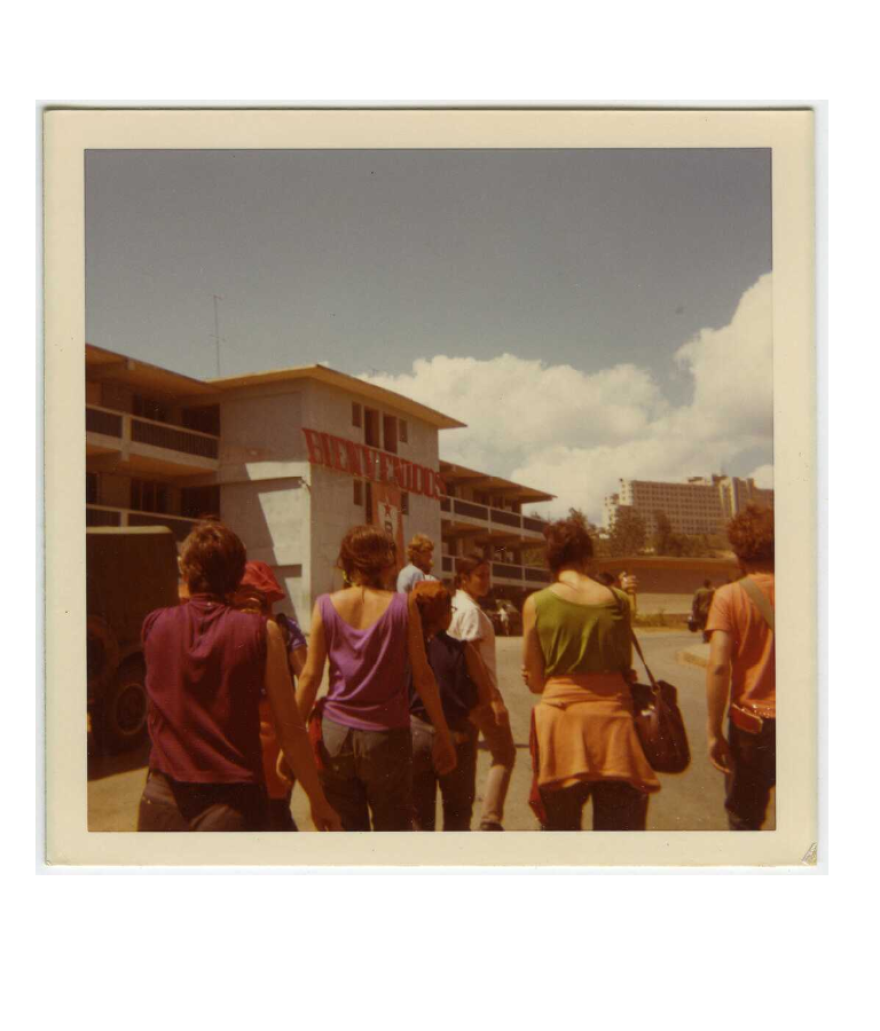For 60 years, the U.S. government has sought to punish Cuba's communist regime through a commercial, economic, and financial embargo – known on the island as the bloqueo. But in that same time, a group of U.S. citizens has also traveled every year with aspirations to work alongside Cubans in sugar cane fields and praise their communist institutions. The Venceremos Brigade, which translates as the “We Will Triumph Brigade," is based in New York and identifies itself as a “Cuba solidarity organization." Members of the group are currently on the island celebrating 50 years of sending willing Americans to the Caribbean country.
Heidi María López, 36, of the Bronx, NY, who is of Dominican descent and has visited Cuba with the group for nine years, said "solidarity" is one of the group's main goals. “And also ... political education to raise the consciousness of U.S. citizens of what is happening here,” she told WLRN from Cuba.
The group sent it first delegation of 216 American students in December of 1969 and their trips have been well documented in academia (and also monitored by the FBI). The Brigade denounces American policy towards Cuba as “imperialist” and says it rejects what it qualifies as anti-democratic attacks on the country’s sovereignty and freedom.
As a protest against Washington's policies in place since 1959, it has sent thousands of willing Americans to engage in a range of volunteer work – like assisting workers in local agriculture and infrastructure projects. The Venceremos Brigade says that encourages exchanges between American socialists and their Cuban counterparts, upholds cultural and educational exchange, and broadly supports the Cuban government.

This year, the Brigade sent its largest group in recent years – over 150 people – on separate trips starting July 23 to commemorate their radical expeditions, now even bolder given President Donald Trump’s policies.
“What is unique about this trip is the context,” María López said. “We are revving up our efforts for people to really understand the policies that are in place and currently being reactivated by this administration."
López said the Trump administration’s new travel restriction policies imposed this year have helped to “undermine the Cuban Revolution” and fueled the original problem that the Venceremos Brigade claims to battle against.
Read more: Cuba Sets Price Control On its Moribund Economy. But Will They Backfire?
Similar to many leftist organizations, the Venceremos Brigade believes that the economic problems in Cuba are wholly due to decades of the economic blockade and tightening sanctions from the U.S.

Harvard’s newspaper wrote about the Brigade in 1970, describing it as seeing “the joy in Cuba.” Some of the Brigade's rhetoric hasn't changed.
“We need to end the blockade so that Cuba can choose to be fully participatory in the world economy,” López said. “And for people to be free to come here and see with their own eyes what models for humanity Cuba is offering us. Not because they are perfect, not because they have found the only way, but because we all deserve to live in our full humanity and that includes Cuba.”
The Venceremos Brigade stands for LGBTQ rights, which is in conflict with the Cuban government’s refusal to approve gay marriage, as well as the violent repression of an LGTBQ march there in May.
López said the Brigade acknowledges that Cuba is imperfect in its treatment of the LGTBQ community and that there is always “more progress to be made.”
Ana Rosario, 34, also a Dominican member of the Brigade from The Bronx, has helped Cuban agricultural workers by picking mangoes and guavas on her trip. She brought along her father Victoriano, who is 68.
“I feel like my faith in humanity is restored when I come here,” Rosario said, describing the reality of Cuba as different than the “propaganda” in the U.S.
“I feel that this work is important but even more now that the U.S. government is being even more hostile than ever against Cuba,” she said.
Victoriano, her father, said he has never been a political activist. “What I have been is a human person and I like when governments do something for humanity and I’ve seen that the [Cuban] government, with the little resources they have because of the embargo, they invest in education and health," he said.
According to Granma, the Cuban government newspaper, the last division of the group will be on the island until August 13, where they will pay tribute to Castro on his 93rd birthday.
Copyright 2020 WLRN 91.3 FM. To see more, visit WLRN 91.3 FM. 9(MDAyMTYyMTU5MDEyOTc4NzE4ODNmYWEwYQ004))












